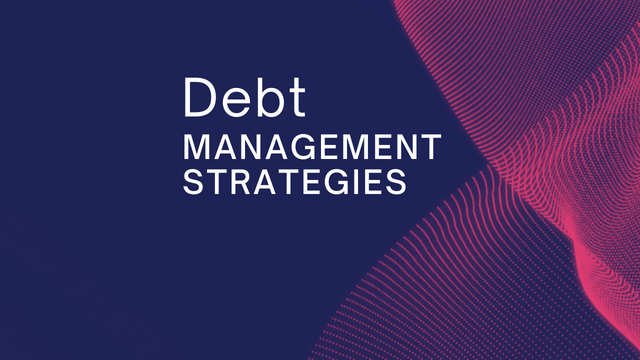Understand Your Debts
The first step in debt management is to understand your debts. Make a list of all your debts, including credit cards, student loans, car loans, mortgages, and any other outstanding debts. Note the interest rates, amounts owed, and monthly payments for each debt.This step will give you an overview of your debt situation. You can then prioritize your debts and develop a strategy to manage them effectively.
Prioritize Your Debts
Once you have a list of your debts, it's time to prioritize them. There are two common approaches to prioritizing debts:- Snowball Method: With this approach, you focus on paying off the debt with the lowest balance first. Once that debt is paid off, you apply the amount you were paying towards that debt to the next one on the list. This method allows you to gain quick wins by paying off smaller debts, which can be motivating.
- Avalanche Method: This approach involves paying off the debt with the highest interest rate first. By doing so, you pay less in interest over time, saving you money in the long run.
Choose the approach that best suits your personal preferences and financial situation.
Negotiate with Creditors
If you are struggling to meet your debt payments, don't hesitate to reach out to your creditors to discuss your options. In some situations, they may be willing to negotiate more favorable payment terms, such as reduced interest rates, temporary payment deferrals, or structured payment plans.Open communication with your creditors can help you avoid late payments and additional fees. They may also offer solutions to temporarily ease your financial burden.
Debt Consolidation
If you have multiple debts with high-interest rates, debt consolidation may be an option to consider. Debt consolidation involves combining several debts into a single debt with a lower interest rate.You can consolidate your debts through a low-interest personal loan, a balance transfer credit card with a promotional rate, or a home equity loan with favorable rates. This can help you save money on interest and simplify the management of your debts.
Avoid Accumulating New Debts
While you work to reduce your existing debts, it's essential to avoid accumulating new ones. Establish a realistic budget and stick to it, avoiding excessive spending and impulse purchases.If you use credit cards, pay off your full balance each month to avoid high-interest charges. Utilize alternative payment methods, such as cash or debit cards, to help limit your spending.
Seek Support and Resources
If you feel overwhelmed by your debts and are having difficulty managing them, don't isolate yourself. There are resources available to support you on your journey to financial freedom.You can seek the assistance of a certified credit counselor who can help you develop a debt repayment plan and manage your finances more effectively. Additionally, there are non-profit organizations that offer free or low-cost credit counseling services.
Don't be afraid to ask for help and surround yourself with support as you manage your debts. Breaking free from the chains of debt requires discipline, patience, and determination, but it is well worth it to achieve financial freedom.
In conclusion, debt management is a critical element of your journey to financial freedom. By understanding your debts, prioritizing them, and implementing strategies to repay them, you can break free from the chains of debt and build a strong financial future.


Comments
Post a Comment